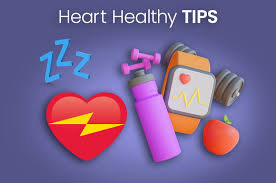The 10-minute personal health tracking system
We are more "health-conscious" than ever before, but many of us struggle to turn that awareness into meaningful action in a world where health information is abundant. There is still a huge and frustrating gap between what is best for us and doing it consistently. But this disconnect isn't just frustrating—it's potentially dangerous.
In terms of energy, longevity, and overall physical capacity, someone who is health-conscious but does not practice good health is no better off than someone who does not care at all about their health. Think about that for a minute.
It is not the same as practicing good health to be health-conscious.
This sounds obvious, but the smarter you are, the easier it is to convince yourself you're perfectly healthy if that is the identify you want to assume.
It's even simpler to believe this if you've read a lot of diet books like Whole30 and own a lot of health apps and wearables like an Apple Watch and Oura ring. Because I did this for a long time, I know.
Believing you're healthy vs. being healthy
From the middle of my 20s to the middle of my 30s, I basically carried on with my life believing that I was in good health, despite the fact that there were some warning signs and I didn't have much to show for it.
Similar to someone who has a nice car and clothes but no real money or valuable assets in the bank, this is a situation.
Because I thought they were cool, I always had the most recent health apps and devices. But I didn't start to improve my health until I made a conscious effort to make use of the plethora of data I was collecting through these apps. After this breakthrough:
- I increased my daily intake of fruits and vegetables from two to four servings to six.
- This may seem self-evident, but if you want to believe that you are in good health, it is easier to do so if you are smarter.
- I went from sleeping an average of less than 7 hours each night to more than 7 hours each night
- .I now exercise 2-3 hours per week, up from 60-90 minutes per week.
- I created a course to demonstrate the exact method I used to unlock all of this potential and to document my process.
- What you'll learn:
- Which five pillars of health tracking are important to measure in order to stay focused on what really matters?
- Which specific metrics to track for each key area so you're capturing the 20% that will drive 80% of your results
- which ranges of each metric to aim for in order to achieve optimal health so that you have actual numbers against which to compare The best way to track each metric (apps, wearables, etc.) so you don't waste your time and money
- How to systematize the process of gathering, organizing, and reviewing your health information
- What habits to focus on to increase your level over time and improve your numbers?
- You will have a better understanding of what it actually takes to improve your health and fitness than 99 percent of people do after taking this course.
More importantly, you'll have a daily system to follow to make it happen with just 10 minutes a day of tracking.
You will acquire the following abilities:
- To avoid becoming "skinny fat," look at your body composition more broadly than just your
- weight. Have a quick and easy method to assess the quality of your diet without requiring a degree in biochemistry or nutrition.
- Improve every aspect of your life by learning how to measure and improve the quantity and quality of your sleep.
- Track your daily step count to gamify your level of activity and make you want to move more and sit less.
- Assess and increase the frequency of your workouts to dramatically lower your risk of dying from any cause.
At the end of the course, you will have a basic method for organizing all of your data so that you can quickly document your past, evaluate your performance, and gradually enhance your output.
















.jfif)